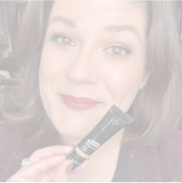Many beauty brands will use fancy language to lead you to believe that they are selling you healthy skincare products. Given how many workarounds there are to claim a slightly all-natural status, finding out if your beauty brand is doing right by you can be difficult to navigate. That’s why when you shop for your skincare and makeup products, there are a few key things that you should look out for.
Things To Look For When You Buy
- Transparency: Is the company being transparent about its production methods, ingredients, and priorities?
- Consistency: Does the company maintain the same production methods, ingredients, and priorities across the board or just with a few best-selling products?
- Lingo: What lingo does the company use to describe its methods? Are they slightly different from the lingo that you know to be used to describe all-natural products?
What These Phrases Mean
- Fragrance-Free: This is one of the trickiest concepts to understand for many. Fragrance-free does not necessarily mean it is unscented. Fragrance-free simply means that there is no added chemical to make the product smell a certain way, and there is no added chemical to mask any natural scent. If a product is listed as “unscented”, that often means that the company has added chemicals to hide some other present smell. Therefore, fragrance-free is considered natural while unscented is not.
- GMO-Free: GMO is an acronym for a “genetically modified organism.” Essentially, a GMO product is scientifically designed engineered to be slightly genetically different for the sake of handling pesticides and other chemicals. This can be seen most commonly in crops and foods in order to survive a longer shelf life. In terms of makeup, GMOs can be found when beauty brands use ingredients that are derived from genetically modified crops. For example, if a company does not advertise that it is non-GMO, any ingredient that comes from say, soybeans, might contain genetically modified chemicals.
- Gluten-Free: In recent years, it has become clearer that many people have an allergy to gluten. Of course, since gluten is a problem for the digestive tract, you might wonder how it can affect you in terms of skincare. Well, gluten in skin care becomes a problem when it goes anywhere near your lips or mouth. While that might not seem like an immediate problem for products such as concealers, being gluten-free should be an industry standard that any all-natural aspiring beauty brand should reach.
- BPA-Free: BPA is short for the chemical bisphenol-A. The most common places you might find this chemical is in hard plastics. Alarmed that it might also be in your makeup? You should be. Especially because proper research has not been conducted yet to fully know the ramifications of BPA on your health. When you can, it is important to avoid BPA-related products.
Absorbing all of this information can be overwhelming, especially when the terminology seems so difficult to understand in layman’s terms. Be patient with yourself as you educate yourself on these topics. While using all-natural makeup products is important for your skin health, you should also take your time to understand why.
For more advice about how to manage your mature skin, click here.

